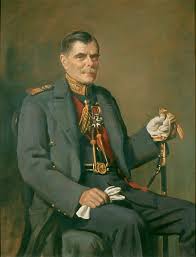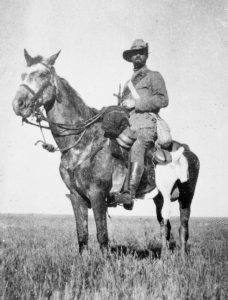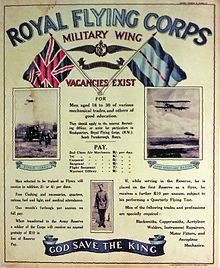RAF centenary
- You are here
- Home
- Museum blog
- RAF centenary
Today marks the centenary of the formation of the Royal Air Force; and curiously, one of our antecedent regiments can claim some of the kudos, as Lord Trenchard (the “Father of the Royal Air Force”) served with The Royal Scots Fusiliers in India and South Africa.
Hugh Trenchard was born in Taunton, Somerset, in 1873. Aged 20, barely scrapping through entry requirements for a commission, he joined the Royal Scots Fusiliers and served in India, spending most of his time on shooting and sport.
Trenchard’s social etiquette earned him the nickname ‘Camel’, as he rarely drank nor spoke.
In 1900, Trenchard arrived in South Africa and re-joined the Royal Scots Fusiliers. The Second Boer War saw him use his experience creating a polo team to raise and lead a company of mounted infantry within his battalion. Whilst recuperating in Switzerland, following critical injuries (losing a lung and the use of his legs), he crashed a bobsleigh and not only miraculously survived, but the paralysis had disappeared!
After commanding the Southern Nigerian Regiment, he was posted to Northern Ireland, where a friend persuaded him to learn to fly. On his return to England, Trenchard did so aged 39, bordering the upper age limit imposed on prospective military pilots, in 1912. He gained his aviator’s certificate with just 64 minutes of flying, and under three weeks tuition – despite being partially blind, a fact Trenchard kept secret.
And the rest, as they say, is history! Suffice it to say that Hugh Montague Trenchard, 1st Viscount Trenchard, the first Chief of the Air Staff certainly earned his title as the Father of the Royal Air Force. Perhaps the most striking commendation came from Marshal of the Royal Air Force and wartime leader of RAF Bomber Command, Sir Arthur Harris:
“For nearly 20 years I watched the Army and the Navy… engineer one deliberate attempt after another to destroy the Royal Air Force… time after time Trenchard, and Trenchard alone, saved us.”



